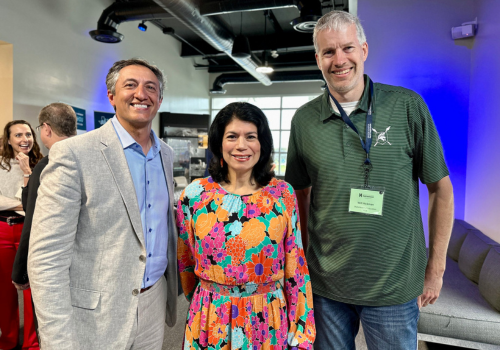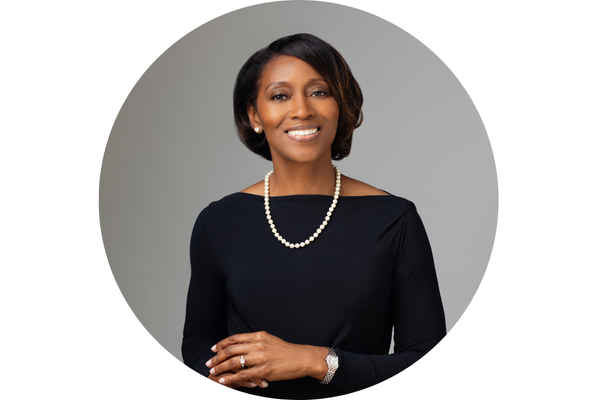Key Points from the 2019 Policy Summit
Published Dec 10, 2019 by Sophia Guevara
On December 4, the Partnership convened the members of each of the nine Public Policy Committees at the 2019 Policy Summit to share and celebrate their collective accomplishments from this year and plan for the year ahead. 2018 Partnership board chair Marc Watts began the meeting by engaging committee members with the Partnership’s new strategic plan called Houston Next.
Although the Policy Summit marked the first significant broad-based engagement of Partnership members on Houston Next, members’ efforts in committees have already begun to move the needle on achieving the plan’s strategic goals. The work of each committee this year is summarized here.
The Houston Next Strategy, first unveiled at the Partnership’s annual meeting in January, focuses on how to advance Houston as a great global city and the role the Partnership should play in shaping it. After a lot of discussion, the Partnership concluded that the new strategic plan would focus on three broad dimensions:
- A great global city must have a strong, diverse “21st Century” economy.
- It must offer – and be known for – a great quality of life.
- And it must provide opportunity for all – both to its current citizens and those who are attracted to it.
During the Policy Summit, committee members divided into three workgroups to develop a deeper understanding of their role in advancing Houston as a great global city as laid out by the Houston Next strategy within these three focus areas and the role their committee will play in reaching those goals.
Strong, Diverse Economy
The Energy Advisory Committee, chaired by Scott Nyquist, and the Sustainability Advisory Committee, chaired by Amy Chronis, led a discussion on the impacts of the energy transition in building a strong, diverse economy. Energy still makes up roughly one-third of Houston’s economy. In order to ensure the continuation of a strong economic base for the region, it is important to position Houston to lead the energy transition. Simply put, no other market in the world has the energy-centric expertise needed to lead the way. Committee members offered their knowledge on how Houston should develop a common language regarding the energy transition. For instance, there are phrases describing the energy transition that are used by various businesses, government entities and other organizations that are not sufficiently aligned or consistent. The committees inventoried energy transition activities, including the many technologies that will contribute to effective and efficient carbon management. Finally, the committees discussed potential policies that enable or inhibit the energy transition.
Great Quality of Life
The Transportation Advisory Committee, led by Mark Cover, chair, and Walt Mischer, vice-chair, the Infrastructure and Resiliency Advisory Committee, chaired by Steve Clarke, the Health Care Advisory Committee, chaired by Troy Villarreal, and the Quality of Place Advisory Committee, chaired by Ric Campo, identified points of intersection between transportation, infrastructure and resiliency, and health care to create a better quality of life for Houstonians. Related to transportation, while Houston’s congestion compares favorably to many of the region’s global peer cities, Houston needs a new mobility plan designed around new technologies and changing demographic and residency patterns. Members recognized that a step has been taken in the right direction when, in November, voters approved the METRONext plan. The plan can have downstream effects by improving transportation infrastructure and routes to health care facilities, which in turn uplifts quality of life. In the new year, members identified the North Houston Highway Improvement Project, the $7 billion, 24-mile, TxDOT project to rebuild IH-45 from Beltway 8 through downtown as a prime example of transportation, infrastructure and greenspace opportunities aligning to improve quality of life for Houstonians.
Opportunity for All
The Public Education Advisory Committee, chaired by Andy Waite, and the Higher Education Advisory Committee, chaired by Thad Hill, plotted a student’s public education through common milestones and transition points from early through higher education. The committees discussed common barriers to persistence and completion as well as key wrap around services and proven methods for improving academic achievement. Committee members identified systemwide opportunities for successful student transitions in their various periods of education, including potential methods to better support and uplift the teaching profession.
Fireside Chat with Scott McClelland and Bobby Tudor
At the conclusion of the Policy Summit, Partnership President and CEO, Bob Harvey, moderated a discussion with 2019 board chair Scott McClelland and incoming board chair Bobby Tudor. Harvey asked Tudor what his focus areas will be as chair of the Partnership. Tudor said that following the Partnership’s recent efforts in public education, he will continue that work as chair although there needs to be a firmer grasp on how “Opportunity for All” is defined. He then stated his primary focus would be on growing Houston’s role in leading the energy transition. In response to a question from Harvey about the growing emphasis on how the Partnership should respond to “conscious capitalism” – from Environmental Social Governance Funds to the Business Roundtable’s issuing a statement that their priority is no longer simply creating shareholder value but also to ensure more inclusive prosperity – Tudor said that the oil and gas industry needs to respond to and be seen as a solutions partner for a low carbon future and a leader in the energy transition. McClelland said that Houston needs to the continue to grow its energy sector but at the same time also look at the commercialization of life sciences, supporting the growth of the port and tech industry to balance the regional economy.
By all accounts, 2019 was an exceptional year at the Partnership made possible by the committee members and chairs. The Partnership’s Policy Advisory Committees will continue their work within the Houston Next strategic plan in 2020. For more information about the committees’ accomplishments this year, click here.
To learn about how to join the Policy Committees, please email [email protected].
 The Houston Report
The Houston Report





















